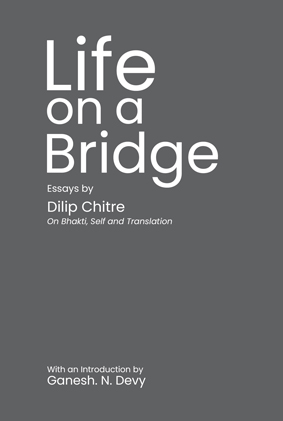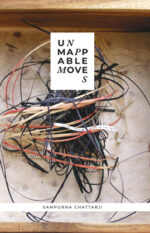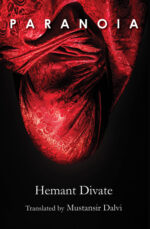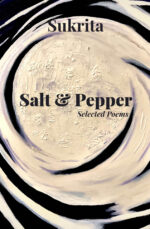About the Book
The essays and transcripts of Dilip Chitre brought together here are valuable in themselves as they offer a commentary on the Indian sense of tradition and the contemporary attitudes to literature. Every piece is of interest in itself. But, their greater worth lies in that they articulate the perspective of one of our most admirable poets on many issues that mattered to him. Taken together, they provide a basis for fathoming his poetry and should help us in making a more nuanced sense of it. Chitre was a fascinating poet, but it is not possible to say that his poetry was easily accessible to most of his readers. Like W. B. Yeats, he weaves in his poems experiences that arise in a given moment (such as the felling of a tree in his father’s house) together with many layers of timeless human quests and anxieties. He brings together silence and euphoria in an imagistic mix that is difficult to name with any precision. It is hence that this
volume of his comments, essays, lectures and other texts should be of importance for the lovers of Dilip Chitre’s literary works.
– Ganesh N Devy
Related products
-
Broomrider’s book of the dead
$26About the Book
Mukta Sambrani’s The woman in this room isn’t lonely is a book of surprising intensity and imagination. Sambrani has a lyricism and fanciful imagination seldom seen in English-language poetry in recent decades. A poem about a man and woman in bed is anything but sentimental. Sambrani’s economy, independence of mind, hard-headedness and irony combine into a rapidly dramatic scene, which within twelve lines becomes grotesquely comic…By now there is a tradition in Indian poems of the coming of poetry as something mysterious. Sambrani’s version is totally unexpected. Bruce King, Modern Indian Poetry in English. Mukta Sambrani’s poems in Broomrider’s book of the dead are notable for their extreme strangeness. The book-length sequence is presented as the working manuscript of its fictional protagonist, Anna Albuquar, whose project is to ‘renegotiate the idea of authorship.’ There are asides, hesitations, false starts, instructions to the reader, and throughout, a steadfast regard for language. Jeet Thayil in Fulcrum and Bloodaxe book of contemporary Indian poets Broomrider’s Book of the Dead…is experimental in every sense… a crowded collage and an eloquent concoction that will make you look up all the references it states or implies…Sambrani said that her protagonist was obsessed with capturing memory “beyond constraints of time and place, beyond decay, illness and the failing of the body. She is obsessed with writing about writing. I am curious about the architecture of our experience. As we move toward a world that is hyper-digitised, our psyches become more and more of an orchestration of fragments of media, sights, sounds, words and visuals. Anna’s writing leans back to lean forward. It captures the history of writing through writing in a world that constructs itself out of fragments of media.Lora Tomas in The Sunday Guardian
-
Unmappable Moves
$20About the Book
Reading Unmappable Moves, I had the strangest sensation of time expanding and closing in. These are taut, enigmatic poems—lightning flashes with bright, insistent heartbeats.—TISHANI DOSHILethal tales of sex and death that left me pining for more of Sampurna Chattarji’s mysterious lyric inventions.—JEET THAYIL -
-
Midnight Verbs
$18About the Book
“What used to be borders is now you,” writes Marko Pogačar in this beautiful, inimitable
collection of poems, giving us a world of post-war Yugoslavia where “TV shows start with
familiar scenes.” What is the poet to do in this world? The poet demands the “green skull of
an apple.” It is a world where eggs chirp, newspapers rustle, and the dead are near. What is it,
this syntax of seeing one's country with full honesty, without any lyric filters? How does it
become so dazzlingly lyrical, nevertheless? “I dislike walking on a person's left side,” the
poet admits. “I shove the night into an evil e-mail / and send it to the entire nation.” And
behind him we see the world, “beautiful, like a burning guillotine.” It is blessed, this
strangeness of abandon, after all is lost. And yet, not all is lost. What is happening here? Real
poetry is happening. Lyric fire. I know it when instead of writing a comment on the book, I
just want to keep quoting. For poetry is a mystery that is communicated before it is
understood. Marko Pogačar is the real thing, and I am especially grateful to Andrea Jurjević
for these crisp, beautiful translations.
—Ilya Kaminsky
History is a constant and defining character in poetry where the most memorable lines
brilliantly combine dark, dry humor with a direct treatment of the physical. There we
discover a mad desire for laughter. For reckoning with rules. With borders. With God. Marko
Pogačar is a poet of expressive power and specificity. Almost every poem is intense and
scandalous, dejected and intelligent, or a poetic whirlwind of all of the above that’s not to be
messed with.
—Claudiu Komartin
Pogačar's poetry is original, layered, equivocal, and rich in references. Like Brodsky, Pogačar
turns to history, but his associations are more reminiscent of John Ashbery and the delightful
strangeness of Tomaž Šalamun.
—Martín López-VegaMarko Pogačar crafts rich, lush poems in a more consistent and refreshing manner than other
poets. His poetry is filled with images that are tough to visualize. His use of language is
rarely referential; it's more in the service of creating linguistic realities, those that exist only in words. Pogačar seems to be constantly testing the ability of language to create worlds.
— Irena Matijašević -
ON THE BRINK OF THE ABYSS
$16About the Book
The fascinating aspect of Zingonia’s poem is the paradoxical unity of the two qualitatively different domains of the earthly and the spiritual. The two are interfluent. Though the culmination of the poem is in the divine love, I prefer not to read the poem in a linear way like in linear spiritual narratives such as Pilgrim’s Progress or Divina Comedia. Here, as in TS Eliot’s Four Quartets, past and future always move to the end – what is always present – and the end is in the beginning. It is pointless to trace the narrative or paraphrase Zingonia’s On the Brink of Abyss – a series of epiphanic moments of poetry at its intensest. The only justice a reader and critic can do to this wonder of a poem is to resonate with those ineffable epiphanies that have somehow slipped into language. What more can I do except to share with readers the way I
resonate with those precious moments of epiphanic agony and ecstasy. And congratulate Zingonia on this rare achievement which has no parallel in any poetry I know of.
– H.S. Shivaprakash
Poet, playwright, literary scholar and translator -
Salt & Pepper
$20About the Book
Salt and Pepper, Sukrita’s selected poems, present an eloquent, word-induced
silence articulated with remarkable ease. In the centre of the
multisensory, reflective silence dwells memory that pesters and heals, and
shapes a deeper understanding of self and existence, taking one beyond the
mere unmasking of a past. What adds luminosity to Sukrita’s densely textured
poems is the layered and fluid exploration of life experience, without any sense
of closure or finality. — Shafey Kidwai—-
Words are not just words, there is a long journey of emotion, thought and
experience behind them with which Sukrita weaves the weft and the warp of her
poems in shades of Salt and Pepper.— Nirupama Dutt
Girija Sharma: Silence emerges in these poems as a powerful metaphor in the interplay of
images which are impressionistic, symbolic and existential all at once. All noise is cancelled
–what remain are words in the purest form building a symphony of silence.
—-
Madhavi Apte: Sukrita’s poems are on the one hand illusive and on the other potent like her
own modern, abstract paintings. Most poems combine the elements of a mystique, the erotic
and the emotional, personal and impersonal. The poems are grounded and yet ethereal.
Basudhara Roy : Many-layered, teasing in its apparent simplicity, and haunting in its
profundity…Animated by her painter’s consciousness, Sukrita’s images are terse, pictorial
and at the same time, both concrete and abstract.
The compression, precision, lightness and luminosity of these poems is undeniable. There is,
in them, a simplicity, intensity and finesse that characterizes classical Eastern forms like the
haiku and the tanka.—–
Shyista Khan: the poems reflect an unmediated subjectivity… The
poetic consciousness borders between self-effacement and self
assertion….









